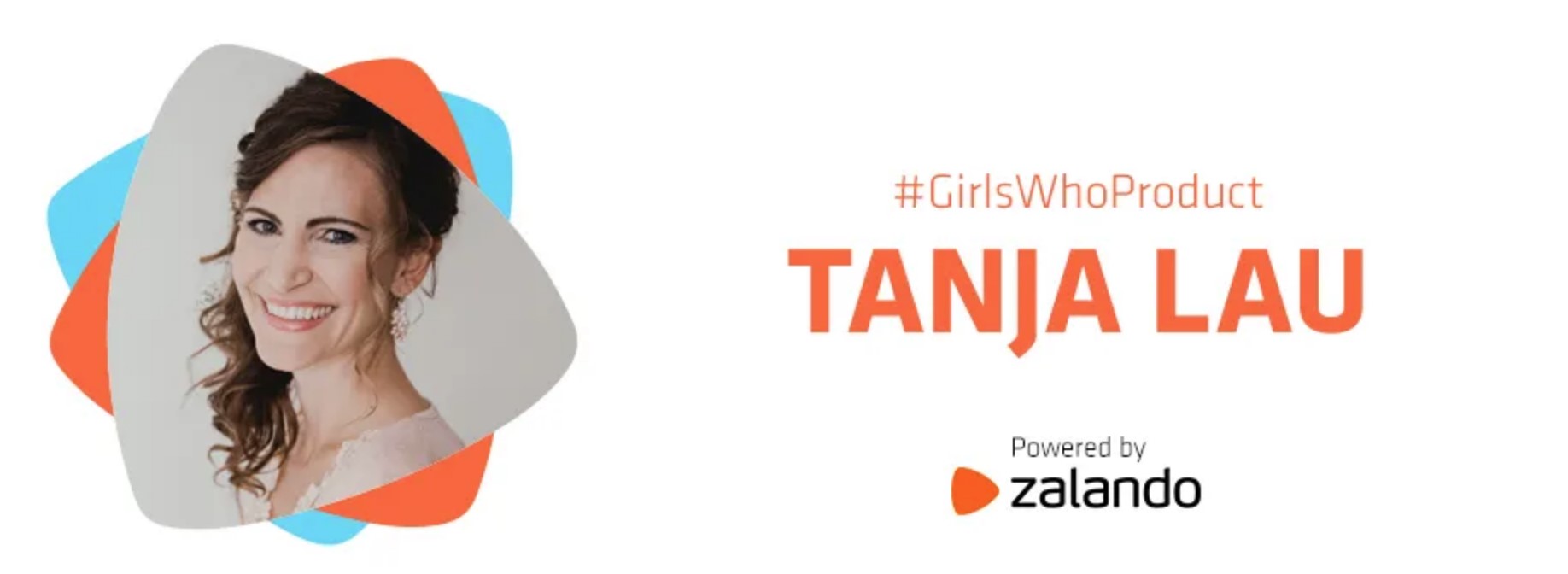Productized: Girls Who Product – Interview with Tanja
Productized: Girls Who Product – Interview with Tanja
Podcast
Tanja is an entrepreneur, product leader and working mum based in Switzerland. After co-founding and scaling several start-ups in Madrid, Munich and Zurich, she is now leading her own company Product Academy as part-time CEO (40%) while also taking care of her two toddlers. Like Alice in Wonderland, Tanja usually thinks of “as many as six impossible things before breakfast” and can’t go one day without eating chocolate.
Listen to this interview and discover how Tanja balances part-time entrepreneurship and family time in order to find a sustainable work-life balance.
By Katsiaryna Drozhzha on January 7th, 2020
K: How did you end up in product, in the first place?
Looking back, I think I’ve been in product much longer than I thought, althought this might not be reflected in my job titles. I entered the field as a program manager for conferences in the publishing industry. After that, I worked as an account and marketing manager for a network of high potentials. I was in charge of conferences, events and a book series. Even though those were actually products, the job was never called product management. So I didn’t know I was part of the global family of product people. Only looking backwards, I realized I’ve been in this field for more than 12 years.
My real start into digital product management happened when I decided to co-found my first startup in Madrid with a couple of Spaniards whom I met at UC Berkeley. That was a spur of the moment thing. Since I didn’t speak any Spanish back then, I couldn’t talk to investors. I couldn’t talk to clients or customers either. The part where I could contribute the most was by coordinating and working with the developers when we were building the platform from scratch. I did it without knowing what I was getting myself into. And I loved it so much that afterwards I’ve always been a part of the start-up scene.
K: As you have mentioned, you spontaneously co-founded your first start-up in Madrid in 2012 without speaking a single word of Spanish. What was the most challenging about it?
It was a very overwhelming experience because everything was new. The job itself was new, the country was new. I had known my co-fonders just for a couple of months. Adapting to the whole rhythm of us working very late and very hard was not easy for me. I think I only slept four hours at night for a couple of months in a row. I was really pushing myself to my physical limits. Also, socially speaking, I felt lonely sometimes. I think that the circumstances in general were not ideal for me to do something so challenging. But at the same time, I would never want to miss that experience. I built my confidence by pushing my own limits, even though it seemed so scary for me and my family. I’m really happy I did it anyways.
K: What have you found to be most rewarding about working in product management?
I’m the type of person who gets bored very easily. This happened to me in a lot of other jobs. But with product management, I think this never happens because the skill set we need is so vast: from business to tech, design, user experience and more. You’re never done learning. Every customer is a new experience, every product is a new experience. There’s just so much more out there that you can do and learn. So I think I will never get bored doing this job. At the very core, product management is about the art of decision making, and I’m really fascinated by it. The decision making process in product management can come from intuition, from data or from combining these two things. This is something I am very interested in.
K: What do you see as your professional mission in this field?
With Product Academy, we’re in the business of upskilling people and encouraging them to enter the field of product management. But in the end, my true “Why” with this company is to encourage and help companies to practice the art of being a learning organization. This topic is very interesting to me. You can actually never “become” a learning organisation, but you can embark on the adventure of practicing these skills and accept the fact that you will never be done learning.
Learning organisations have the habit of not being so reactive and they know how to take the future into their own hands. They keep reinventing themselves and accept the responsibility they have in this world. This is really something that I feel is worth pursuing. That’s why I’m trying to help organizations grow beyond just building a product department. Because I think as long as we’re just talking about departments, we’re still far away from becoming a truly learning organization. It is all about understanding that we are all part of the puzzle. I help people understand what we need in order to become this kind of learning organization, what kind of culture and circumstances we need to create and to thrive the most. It’s not just about having a couple of people getting better at their job. It is about helping the whole organization to move forward.
K: On your website you have presented your mission as “Empowering Product People.” What is the meaning that you put into the word “empowering”?
As a product management coach, I am encountering a lot of product people who feel helpless, burnt out and overwhelmed by their job. I want to help them feel better and be happier in a more sustainable way. We cannot keep burning out our product people. They are too scarce a resource. Often it’s a systemic issue. They might be used as scapegoats when things go wrong. What happens is that sometimes we don’t have a real purpose to go after, because the whole company is just trying to get more revenue. This is not really fulfilling on a personal level. That is one of the reasons why product managers are stressed out. Sometimes they do not know how to say “no”and how to focus more on what is really important because everybody keeps pulling and stretching them very thin. Or, maybe, the organizations don’t have the structures where people can recognize the value of the work that product people are doing every day. All these things can make you feel powerless, stressed out and overwhelmed. And I’m trying to turn things around to help them understand: What are the next baby steps they can take within their organization to move towards an ecosystem where they can provide value and feel good about it? Or I try to encourage them to look for companies where they can experience a different appreciation for their job, which is really hard.
K: You really make it clear that family comes first for you. I feel like in the modern world this philosophy is not very welcomed anymore. To be a good worker you need to devote all of your time and all of your energy to the workplace and never stop demonstrating to your employers that you are fully committed. This consequently tends to benefit men and disadvantage women in the workplace. What makes women feel more stressed about their career and motherhood. How do you manage to prioritize your family life that well?
It was never something that I could imagine myself doing otherwise. It would have never crossed my mind to be ashamed of being a mother, having to hide the fact that I have children. I think this is part of who I am. Part of my superpower is that I am a mom. I learned so much by being a mother that I’m feeding my learnings back into the way I’m working nowadays. We need to be courageous about our role as parents and leaders. It’s just one of the many roles that we have, which doesn’t make the other roles less or more important.
It’s always hard to talk about society in general. But I think there are certain areas and industries that have recognized that they need more female talent for their companies. For example, for most companies it is quite hard to find more male developers because they’re basically all employed and working. Tapping into the pool of really talented women in tech is something that makes a lot of business sense. There are still a lot of women out there who would like to get back to work, but feel there is no suitable workplace where they can combine their roles as parents and employees in a satisfying way.
There are countless studies that show diversity as a key factor for the success of teams. I think more and more employers understand the importance of becoming more diverse from a business point of view. And sooner or later, they will probably also start embracing this from a more empathetic point of view: caring about society in general. Thinking from human to human. We might need to wait for a couple of years to see more women in leadership positions.
Is it the input (=how much time and energy I am putting in) or the output (how many emails I write, how many meetings I attend) that defines the value of my work? Or isn’t it rather the outcome, the value that I am creating, that makes all the difference and should be the reason for me being employed and considered a valuable part of the company?
I think that as long as we’re driven by input-output thinking instead of outcome thinking, we will keep having a misunderstanding about what creates value at work. It’s a shortcoming of how certain managers lead. It is really hard to set good goals in terms of clearly defining and breaking down the outcomes that you want to achieve. Ot at least it is much harder than just tracking the hours that somebody spends in the office. But as soon as you start moving away from output and input and start talking about outcome, it will become much easier to find a work set-up where everyone can create value. Even if you’re working part time. If you’re counting hours and you see somebody else offers more hours at work, that doesn’t mean that they offer more value.
It’s a mindset shift that we need to undertake to make women feel better and more confident at work, even if they might bring less time to work. At the same time, we need to move away from the stigma of men having to work full-time. In Switzerland, for example, it is common for men to work only 80% of the full working hours. You see a lot of dads during the weekdays in the city with their babies in the carriers. And that’s lovely. Even though I think we still need to make it more common to see men working even less than 80% of the time. That will allow women to move towards more flexible time models where you don’t define your work load in terms of hours spent at work, but in terms of value you bring to the table. For example, we could find a more fluid concept where you have certain times a year where you have more energy you can dedicate to work. And then instead, during the school holidays, you could maybe dedicate more time to family. The industry needs to adapt more to our lifecycle as parents for us to bring the most value and feel really good about combining work and family life. And this goes for people without children, too. There is a strong trend towards seeking purpose outside of work, taking sabbaticals and recalibrating often. Employers who truly understand and embrace this will have a clear advantage on the job market in the future.





